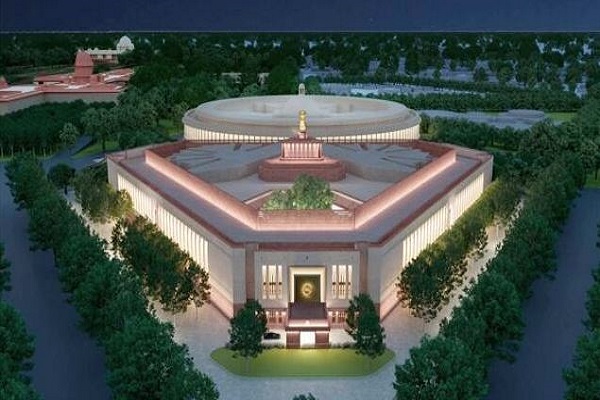(Guru Prakash)
The controversy around the inauguration of the new parliament house is ill-informed and another example of politics of symbolism from the Congress and other opposition parties. The President, Parliament and the office of the Prime Minister are institutions derived from the Constitution and must be kept outside the realm of politics.
The new parliament building is a temple of democracy. As the world’s largest democracy, this inauguration is an occasion to celebrate the manifestation of the collective faith of 1.4 billion people in this institution. It will be a testament to the vision of the makers of our Constitution who believed in the spirit of unity, fairness and consensus.
The controversy around the inauguration of the new parliament house is ill-informed and another example of politics of symbolism from the Congress and other opposition parties.
My article on the same for @IndianExpress https://t.co/QV8O2GBymg
— Dr. Guru Prakash Paswan (@IGuruPrakash) May 25, 2023
Lupita Nyong’o, the celebrated Kenyan-Mexican actor, once remarked, “What colonialism does is cause an identity crisis about one’s own culture”. Being the fifth largest economy in the world, India must realise its true potential. As a host for multilateral events like the G20 and the Shanghai Cooperation Organisation, the pharmacy of the world during Covid, and a voice of the Global South, India is increasingly becoming a significant pole in the new world order, which encourages a democratic ethos.
The international recognition of The Elephant Whisperers and RRR is an indication of a global appetite for our value system. The new parliament building represents the collective aspiration of the people and the assertion of India’s arrival on the global stage.
The Guardian, in an editorial, observed: “Today, 18 May 2014, may well go down in history as the day when Britain finally left India. Narendra Modi’s victory in the elections marks the end of a long era in which the structures of power did not differ greatly from those through which Britain ruled the subcontinent. India under the Congress party was in many ways a continuation of the British Raj by other means.” This quote sums up the politics behind the inauguration.
People can sense the politics behind the Congress party’s unexpected love for the President of India. For the first time in India’s history, a woman from the tribal community has reached the highest constitutional office in the country. But just last year, a senior leader of the party made a poor remark about the President (though he did immediately apologise for it). Also, on a matter that would have otherwise been resolved with a national consensus, the Congress ensured hurdles in the path of the woman from the Santhal community from Mayurbhanj, Odisha on her path to the Raisina Hills.
The appointment of Arjun Ram Meghwal as a minister with independent charge of the Department of Law and Justice is another example. He is the only leader from the Dalit community after Ambedkar to handle this portfolio. The highest civilian honours became a quid pro quo during the Congress-led UPA regime. These are now finally being awarded to people from the marginalised sections. Who would have imagined that a poet from the remote Sambalpur area in Odisha, who speaks the local Kosili dialect, would be receiving a Padma Shri? Who would have imagined that a Shantaram Siddi would become the first lawmaker in India from the African-origin community of Karnataka? Who would have thought that it would take us more than seven decades to send an artist from the Dalit community to the Rajya Sabha?
The Congress’s disregard for issues affecting marginalised sections of the society is the greatest disservice to the legacy of Gandhi and Ambedkar. The Congress party is a product of elite feudalism that treated the Dalits and tribal people as a vote bank. It is only now that social justice, through recognition and representation, has become an article of faith in politics.
(The writer is national spokesperson, BJP)

